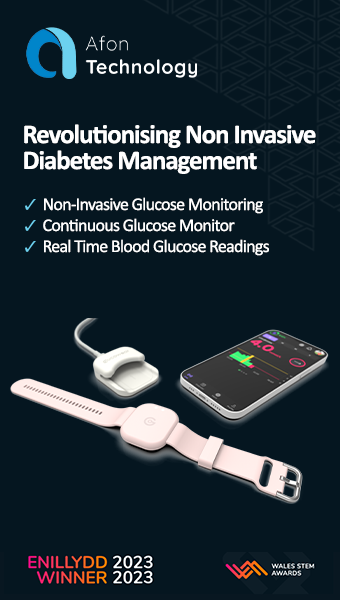Learna, the Cardiff-based online education provider, have launched a new fast track assessment for healthcare professionals, designed to bring more regulation to the largely unregulated aesthetics sector.
The new Fast Track Assessment (FTA) is the first of its kind and has been launched in collaboration with the Joint Council for Cosmetic Practitioners (JCCP) to provide evidence of equivalence to the JCCP’s Level 7 qualifications for healthcare professionals. It is intended to streamline the process, enabling more cosmetic practitioners to be eligible to join the JCCP Government PSA approved register.
With reports of a ‘zoom boom’ in demand for non-surgical cosmetic treatments, including the administration of injectable toxins and fillers, it is clear that many people are seeking out aesthetic treatments post-pandemic, with aestheticians currently reporting a huge surge in bookings.
But the public may not be aware that individuals carrying out injectables and other non-surgical procedures are not required to have any formal healthcare clinical qualifications, with the industry still being largely unregulated.
Political pressures have amplified over the past decade, demanding better regulation of the industry. In 2013, a Government commissioned report called for a legislative framework to be introduced to better regulate the industry, describing the use of dermal fillers as a ‘crisis waiting to happen’.
The Botulinum Toxin and Cosmetic Fillers (Children) Act 2021 was recently given Royal Ascent in the UK Parliament, banning the use of injectables toxins and fillers in children for non-medical reasons.
But in Wales there is currently no legislation which places additional regulations on the aesthetics industry. When the Public Health (Wales) Act was introduced in 2017, it included regulations for ‘Special Procedures’, requiring that those who perform acupuncture, body piercing, electrolysis and tattooing are required to be licensed to do so by a local authority. Despite calls for injectable toxins, dermal fillers and non-surgical cosmetic procedures to be included as ‘special procedures’, there are no regulations for licensing or medical qualifications to perform these treatments in Wales.
This means that it has largely been left to the sector to self-regulate and the JCCP is behind much of the momentum towards raising awareness of the importance of professional standards among the public and practitioners alike, and the launch of the new Fast Track Assessment is another step to achieving this.
The FTA offered by Learna is specifically designed for aesthetic practitioners looking to assure patients of their quality and safety standards. Its aim is to provide a quicker, cheaper alternative for practitioners looking to register with the JCCP’s Government PSA approved Practitioner Register, which was established in 2018.
The register requires practitioners to undertake a formal qualification to demonstrate their knowledge, skill and competence in cosmetic medicine to achieve full and unconditional registration.
Learna’s FTA is the only fast track assessment programme in the UK that is formally recognised by the JCCP and enables practitioners to access Part One of the Government PSA approved JCCP Practitioner register.
It offers practitioners a Level 7 Qualification that is an alternative to more costly and time-consuming qualifications such as the Cosmetic Medicine PgCert, PgDip and other related postgraduate qualifications.
The programme ensures that those operating in the industry are more accountable to members of the public with regards to their ‘fitness to practice’, and that those looking for an aesthetic practitioner can be confident in choosing one from the JCCP’s approved register.
Professor Steve Davies, Founding Director of Learna and Chairman of the Welsh Aesthetic and Cosmetic Society, said:
“The rise in demand for cosmetic procedures also demands greater responsibility from us as aesthetic practitioners, to demonstrate competency in carrying out these treatments and reassure the public that they are in safe hands.
“In creating the FTA, we have provided an alternative option for practitioners who may have years of experience under their belts who are looking to demonstrate their expertise within the cosmetics/aesthetics sector and be recognised as a JCCP registered practitioner. This is a real must as the sector works towards professionalising aspects that remain unregulated.
Claire Holmes, Head of Aesthetics Training at You Can Clinic in Cardiff, said:
“We see great demand from medical professionals for our CPD and training, highlighting the appetite among practitioners to stay ahead of best practice and provide the best quality and standards to their patients. And with sector being so reliant on self-regulation, opportunities like the Fast Track Assessment are crucial for practitioners. Having the FTA in Cardiff will provide a great boost to the industry in Wales.”
Professor David Sines CBE, Chair of the Joint Council for Cosmetic Practitioners, said:
“The JCCP is delighted to be working in partnership with Learna to co-design and endorse the implementation of the Council’s first Fast track Assessment Centre. The concept of the Fast Track Assessment Centre was envisaged in 2018 and has always been central to the JCCP’s strategy to provide accomplished and experienced health care regulated practitioners with a more accessible entry route to enable them to achieve entry to the Council’s Practitioner Register.”
You can read more about the new FTA, which is now open for applications, on the Learna website.
For more information on the Joint Council for Cosmetic Practitioners (JCCP) or the PSA approved Practitioner Register, visit: https://www.jccp.org.uk





